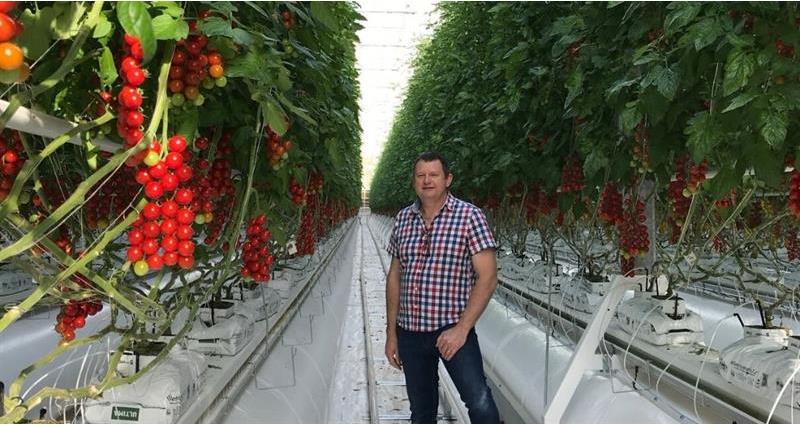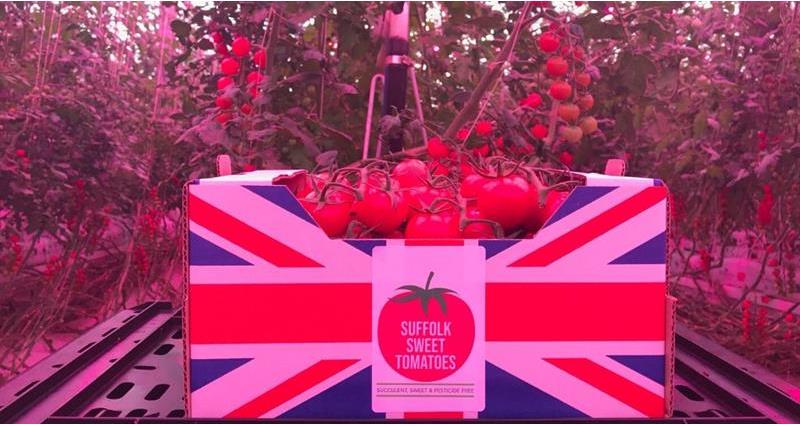Sterling Suffolk set up shop in 2018, with the aim to grow tomatoes as environmentally sustainably and as socially responsibly as possible. Growing in a 5.6ha glasshouse unique to the UK, the business supplies supermarkets, as well as supporting local businesses by selling through community shops and farmers markets.
The 'semi-closed' glasshouse is the first of its kind in the UK and boasts benefits to both the environment and crop health. The glasshouse contains very few roof vents, instead using an evaporative cooling system that takes in air through large vents on the side of the structure. Air passes into the glasshouse through a cardboard pad that runs along the glasshouse side, acting like a giant radiator. Cold water running over the pad absorbs heat from the entering air, cooling it by up to 15 degrees. The system also means that 15% less gas is required for heating and despite initial investment, reduces overall energy usage. Furthermore, reduced roof venting results in less CO2 loss from the glasshouse.
To further improve eco-sustainability, all roof water, condensation and waste water from the crop is collected and stored in a small, deep reservoir. This has resulted in the business being entirely self-sufficient in water for their first year running - this can be considered quite an achievement when growing in East Anglia!
Bumble bees are used for pollination and once they come to the end of their working life, they are released right outside; 20% of Sterling Suffolk's land is conservation managed, providing wildflower meadows, thick hedgerows and natural ponds to increase biodiversity.
As with any grower, Richard faces challenges to ensuring healthy plants to provide healthy crops. One of the biggest threats currently facing the industry is the spread across Europe of tomato brown rugose fruit virus (ToBRFV), with the virus being reported in the UK for the first time earlier this year. There are no varieties resistant to the virus, therefore concern is high over importing produce that contains the virus.
Despite the threat of ToBRFV, Sterling Suffolk has managed to remain pesticide free for its first year in business, which Richard attributes to both the design of the glasshouse and stringent biosecurity measures; for example, visitors who have been in a glasshouse in the last 4 weeks are not allowed on site.
Taking the air entering the glasshouse and blowing it up under the planting gutters allows improved airflow through the crops, helping to prevent botrytis. Whitefly have been successfully tacked with weekly introductions of beneficial encarsia formosa wasps.
Further IPM practises such as inoculation, insect netting, carefully choosing resistant varieties and using coir as a natural growing medium have all helped reduce the impact of pests, weeds and diseases. Feeding bacteria and fungus through the irrigation system acts as an alternative to pesticides to protect root zones. A trial and error process was required to find preventative biosprays that work effectively.

We also asked Richard what he thought 2020 would have in store for Sterling Suffolk, as well as the wider horticulture industry. Richard said:
“Every season brings new challenges, although some such as labour remain the same. We look forward to growth in our business and a long summer to drive sales”
Read more about the NFU's Net Zero Goal
More information about ToBRFV can be found on the AHDB website
